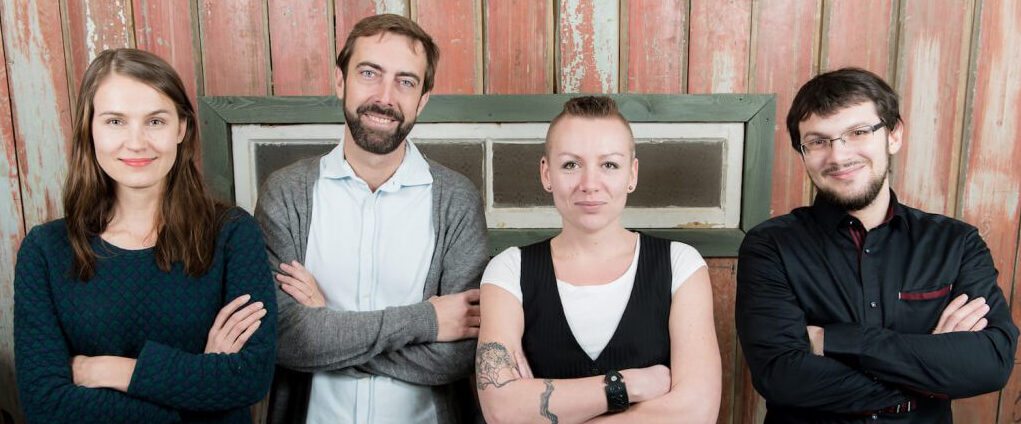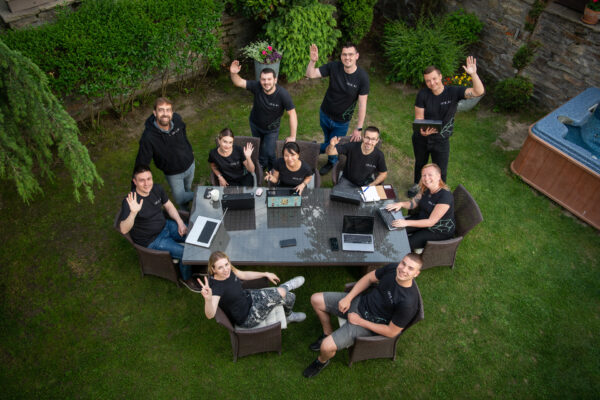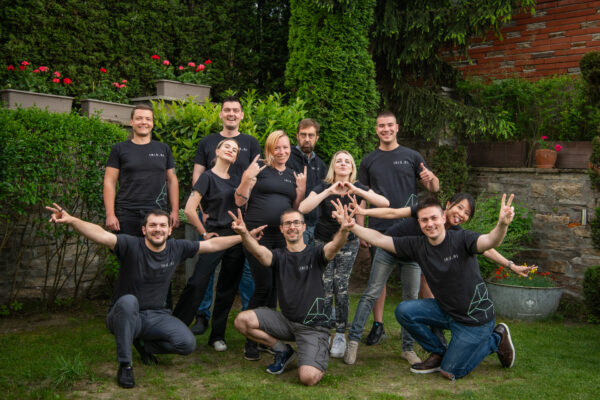What is Iris AI?
Q: Can you introduce yourself and your company, Iris AI?
A: My name is Viktor Botev, and I’m the CTO and co-founder of Iris AI. With a background in software engineering and a 15-year tenure in applied, I’ve always been deeply involved in the technical realm. Iris AI is my latest venture, focusing on developing software tools for researchers. We aim to enhance innovation and the creation of new products, especially in material science, ranging from new materials and coatings to medical devices. We leverage NLP and machine learning to help researchers stay abreast of the latest developments, analyze documents, and experiment with different materials.
Q: What inspired the creation of Iris AI?
A: The idea for Iris AI stemmed from my personal experiences, though each founder had their unique motivations. Before Iris AI, I worked at Chalmers University of Technology as a research engineer. I once challenged myself to stay updated with all the latest research in my areas of interest in just one day. It was a daunting task that took me 16 hours just to gather, organize, and prepare the literature for one day’s worth of publications. The realization of how time-consuming this process was every day sparked the idea for Iris AI. When I met the three other co-founders, who were already contemplating revolutionizing research methods, everything just clicked into place. It was the perfect convergence of the right time, people, and problem.
Why Founders Factory?
Q: What led you to join Founders Factory?
A: Joining Founders Factory was influenced by several factors. Initially, Iris AI was part of a pre-accelerator program, 500 Nordics, an offshoot of 500 Startups. This experience provided us with mentorship and a small investment. About a year later, we felt an accelerator program would be beneficial. We were also finalists at TechCrunch Disrupt in the UK, where we first interacted with individuals from Founders Factory. Our decision was influenced by London’s reputation as a thriving hub for AI companies, despite the impact of Brexit. After evaluating Founders Factory’s services and offerings, we decided it was a good fit and chose to join.
Founders Factory Application Process
Q: Was there an application process for joining Founders Factory?
A: Yes, we completed an application. However, we had already established contact with one of the selection team members at TechCrunch Disrupt. So, while we did go through the formal application process, there was a prior understanding that we would likely be accepted.
Q: What was the process before joining the program?
A: Before being accepted into the program, we underwent several interviews. The first was an informal discussion with the person responsible for the application process. Following this, our business team had a meeting to assess our company’s business potential. Personally, as the CTO, I met with the CTO of Founders Factory to discuss NLP and AI. These discussions were quite informal but crucial for both sides to evaluate if we were a good fit.
Q: What do you think made Iris AI stand out in the application process?
A: Being a finalist at TechCrunch Disrupt played a significant role, as it provided visibility and validation. Additionally, our technology, though still in the early stages, had significant potential, which is what accelerator programs often look for. They’re interested in the untapped potential that they can help develop into a successful company. The timing also matters, both for accelerators and when seeking investors.
Q: Did Iris AI have any traction when you applied?
A: At that time, our traction was limited. We released our product and attracted about 20,000 visitors to our website in the first few months. However, these users were not yet engaging deeply or paying, indicating interest but also highlighting the need for further development to turn it into a viable business.
Inside Founders Factory Program
Q: Could you describe the structure of the Founders Factory program?
A: Upon joining Founders Factory, we were deeply committed to maximizing our time there. The program lasted about six months. As a Norwegian company with four founders, we decided that two of us would always be present in London, utilizing the free office space provided by the program. The physical presence, I believe, is crucial in such programs. The program covered various aspects, including business elements like marketing and sales, technical aspects, and operational strategies like company organization. It was structured into different modules, each with its own set of mentors.
Q: What did you find most valuable in the program?
A: The most significant aspect of any accelerator, including Founders Factory, is the network it offers. While the program imparts a lot of knowledge, not all of it is immediately applicable. You might only use about 20% of what you learn right away, with the rest becoming relevant over the years. At first, we didn’t think we gained much from the network, primarily because it was tailored more towards larger industries. However, as our company matured, we realized the true value of the network and began leveraging it years later, making connections with potential clients and investors.
Q: How did the timing affect your ability to leverage the network?
A: The timing of when you’re introduced to the network is critical. In retrospect, engaging with high-profile contacts like a VP of innovation at L’Oreal might not have been ideal at our early stage. The key is to evaluate the network but also to assess the right stage for your company to be introduced to these contacts. This applies not just to Founders Factory, but also to our experience with the pre-accelerator, 500 Nordics. Timing is everything in maximizing the benefits of these networks.
Q: Did Founders Factory provide funding as part of the program?
A: Yes, we received funding, but it was relatively modest compared to the value of the services offered. The funding came in the form of a convertible loan, which included both a small cash component, around £20,000, and the majority in services. After a few years, during a pricing round, this loan was converted into equity, making Founders Factory a shareholder in our company. Regarding equity, it’s a minor stake, definitely less than 10%. It might be around 1 or 2%.
The equity stake Founders Factory holds is relatively small compared to some other accelerators. The terms of our convertible loan, which combined the investment and services, were valued at about £250,000. The conversion rate and the subsequent equity percentage depend on the valuation at conversion. In our case, the conversion happened at a valuation of around £12 million, resulting in a smaller equity percentage for Founders Factory.
Achieving Milestones
Q: Can you share any significant milestones achieved during your time in the program?
A: One key milestone was receiving our first convertible loan checks. Although it’s hard to gauge the direct impact of Founders Factory on this, they certainly helped us refine our approach to investor conversations. Another significant development was the beginning of hiring new team members. We had extensive discussions with the CEO of Founders Factory about structuring the company, focusing on aspects like company culture. Given that our company was only a year old at the time, a lot happened in those six months, including two software releases. The program’s environment, surrounded by other startups, was also beneficial. It allowed us to share knowledge, and experiences, and focus on the positives of running a startup, creating a supportive and understanding community.
Current Status of Iris AI
Q: What is the current status of Iris AI?
A: As of now, Iris AI has raised about €8.5 million, with €3.5 million in private equity and the rest in grants and research funds. This funding supports our extensive R&D efforts for products aimed at researchers. We’re currently in the middle of a Series A funding round. Our client base has grown, and we’re generating around €700,000 in annual revenue. We won the EIC Accelerator grant last year, which was a notable achievement. Over the years, we’ve become adept at securing grant funding for research. Our network with various universities for research projects has expanded, partly due to the connections we made with a few UK universities through Founders Factory’s CTO. These relationships have been instrumental in our research and development initiatives.
Final Advice
Q: Do you have any advice for founders considering applying to Founders Factory?
A: Founders should first ensure they are at the right stage to benefit from an accelerator like Founders Factory. It’s important to thoroughly evaluate the program and determine what aspects will be most useful for their specific needs. Participation in such a program should only be considered if they are willing to invest the necessary time to learn and grow. Specifically regarding Founders Factory, it’s an excellent option for those looking to engage with large corporations in the future. Founders Factory has a strong network of big corporations actively seeking startup solutions, which can be incredibly beneficial. However, founders need to carefully assess when to best leverage this network. Accelerators are particularly advantageous for companies that are one or two years old, as they provide vital mentorship for early growth stages. We received valuable advice from Founders Factory on various aspects of company development.



